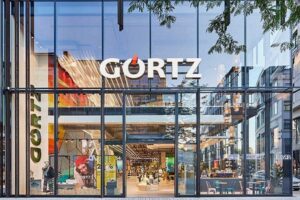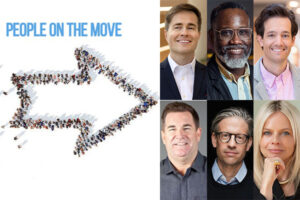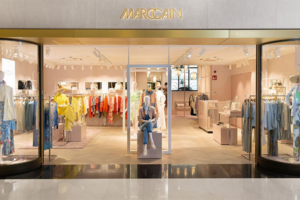“Europe’s leading retail brands are among the strongest in the industry overall. Compared to the top 500 Commercial Real Estate Brand Study, only the investment funds Union Investment Real Estate and Deka Immobilien and the property agent JLL achieve higher values than the two front runners in the top 50 European retail rankings,” notes Peter Koppe, Head of Research at the Eureb Institute. The data analyst cannot make statements comparing the situation over time until next year, however, because the retail ranking was first held in 2015. “Studies are snapshots. If the environment changes, leaders rest on their laurels, or competitors intensify their commitment, the picture today could already be different. It won’t be until we have regular survey results that we can determine how stable market positions really are,” Koppe explains. Moreover, “the higher a brand is placed, the easier it will be for it to generate business. As the position rises, so do phenomena such as first point of contact, confidence, and customer loyalty.”
Knowledge about positioning finds receptive ears not only with brand holders, but also with analysts, consultants, and industry associations. This was felt in the number of respondents to the study as well as the positive response received when the study was announced. All in all, 752 out of 13,000 international market experts participated in the Eureb Institute’s study, which was created in cooperation with “ACROSS – The European Retail Real Estate Magazine.” The addressees consisted of about one-third each of dealers, operators, and developers. The remaining respondents were spread across the categories of asset and property managers, investors, and consultants. They all evaluated Europe’s 84 most relevant operator and developer brands. The top 50 were then listed in the ranking.
High-profile double tip
The German firm ECE and the Australian company Westfield enjoy impeccable reputations. Their dual leadership will hardly surprise the industry, but their distance from the next competitors may: At a brand potential exploitation rate of approximately 80%, the two top-ranked firms were in a neck-and-neck race in a market that averaged 63%. By implication, this means that the winners have only half as much untapped potential as the rest of the industry.
The differences between the winners was as striking as the brand potential they realized. Although close to each other in the reviews, the ECE stands out from the runner up – and the industry as a whole – in particular through reliable pricing, flexibility, and a high degree of regional and solution-oriented expertise. This is because pricing reliability and flexibility are the industry’s weakest performance criteria, with averages of 57% and 55%. The same cannot be said of competence, though here, too, ECE achieved a top rating. But given the high average value of 75%, the distance between it and its competitors is too small to show the value of the brand.
Westfield surpassed ECE on the performance dimensions of success and innovation, implementation, and differentiation power, however. The variations in their evaluation are reflected in the companies’ images as well: ECE has a reputation for having grasped the logic of the shopping center product like no other, whereas Westfield provides solid implementation and attention to detail and its name is synonymous with White City or London Stratford. The Australian developer wrote a piece of European shopping center history with those iconic malls. The study also revealed something else, however: Brands with clearly recognizable contours are not the royal privilege of large companies.
Small niches, powerful brands
Niche players that are generally little known in the market have strikingly clear contours. Thus, small or regional players like France’s Financière Duval or Russia’s Torgovy Kvartal and Renaissance Development ranked similarly well in their brands’ performance dimensions as the industry leaders ECE and Westfield. “Although few market players know these providers, those who do are highly enthusiastic about them – real fans,” Koppe comments on the data findings. The fact that these excellent values were not enough to land at the top of the ranking has to do with the nature of the evaluation process. Rather than rating the status quo, the Retail Real Estate Brand Study determines the probability of success for a brand. That probability increases with higher sales opportunities. The less well known a brand, therefore, the smaller the potential circle of buyers and the lower the level of recommendations and intent to purchase. That weakens the overall performance of excellently positions brands that appeal only to very narrow target groups.
The H&Ms, Zaras, and Desiguals of the industry now offer goods worldwide. Although the big chains are shopping centers’ most important customers, their cosmopolitanism has barely carried over onto the operators and developers. Their international brand recognition amounted to an average of just 4.5 countries. Twelve players are known in ten or more countries. ECE Projektmanagement, whose name is recognized by market experts in 14 countries once again leads, closely followed by CBRE Global and Redevco.
The influence of business abroad
Contrary to expectations, the survey found no systematic relationship between international reputation and international activity. Some brands are internationally known despite a lack of much international business; for others, it is just the opposite. ECE is a skilled foreign developer and operator and covers both values. Worldwide, the Hamburgers are active in 16 countries. Redevco, by contrast, once entertained locations in 24 countries and assets in 32. Although it is active in only seven today, its name is still recognized in 13 countries – apparently the market remembers the more expansive times.
For Westfield, the reverse is true: With 10 mentions, they have an international reputation even though their European field of activity is limited to the UK and Ireland. The fact that experts in five times as many countries know the brand is surely do to their spectacular objects. The discrepancy with the German developer and operator mfi is similarly striking. Outside Germany, it only manages malls in Turkey. Its joint venture with Unibail-Rodamco probably increases its brand visibility – the French-Dutch Group operates in twelve countries. The fact that mergers and acquisitions are a proven means of increasing foreign presence is also demonstrated by the good performance of CBRE Global. Its purchase of the ING Real Estate Portfolio 2011 likely contributed to its visibility.
The Top Ten
- ECE
- Westfield
- Unibail-Rodamco
- TIAA Henderson
- mfi
- Sonae Sierra
- McArthurGlen
- Carrefour
- CBRE
- Redevco
Source: Eureb-Institute





![Titel_Across_1_24_Endversion[111270] Titel_Across_1_24_Endversion[111270]](https://www.across-magazine.com/wp-content/uploads/elementor/thumbs/Titel_Across_1_24_Endversion111270-qjpg2yp7x6msxzo90wpo62uop32tmjtjils84ezryg.jpg)
